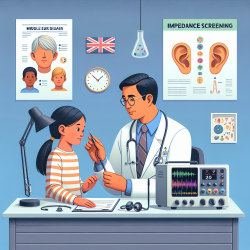Understanding Delay Discounting: A Genetic Perspective
Delay discounting is a fascinating concept that refers to the tendency of individuals to devalue rewards based on the delay in their receipt. This behavioral trait is not only prevalent in humans but also observable in animal models. Recent research, particularly a genome-wide association study (GWAS) conducted on Heterogeneous Stock (HS) rats, sheds light on the genetic components that influence this behavior.
Key Findings from the Study
The study, conducted by Lara et al., involved 650 HS rats and aimed to identify genetic loci associated with delay discounting. The researchers used an adjusting amount procedure, where rats chose between smaller immediate sucrose rewards or larger delayed rewards. The study found significant loci on chromosomes 20 and 14, with the genes Slc35f1 and Adgrl3 being implicated in delay discounting behavior.
Implications for Practitioners
Understanding the genetic basis of delay discounting can have profound implications for practitioners, especially those involved in therapy and education. Here are some ways this research can inform practice:
- Personalized Interventions: By understanding the genetic predispositions of individuals, practitioners can tailor interventions that are more effective and personalized.
- Early Identification: Identifying children who may be genetically predisposed to impulsivity can lead to early interventions, potentially mitigating future behavioral issues.
- Informed Decision-Making: Data-driven insights from genetic studies can help practitioners make informed decisions about treatment plans and educational strategies.
Encouraging Further Research
While the study provides valuable insights, it also highlights the need for further exploration. Practitioners are encouraged to delve deeper into the genetic aspects of delay discounting and its implications for behavior. Collaborative efforts between geneticists, psychologists, and educators can lead to more comprehensive understandings and innovative solutions.
Conclusion
The genetic study of delay discounting in HS rats opens up new avenues for understanding impulsivity and its impact on behavior. For practitioners, these findings offer a data-driven foundation to enhance therapeutic and educational outcomes. As we continue to unravel the complexities of genetics and behavior, the potential for creating positive outcomes for children becomes increasingly promising.
To read the original research paper, please follow this link: Genome-wide association study of delay discounting in Heterogeneous Stock rats.










